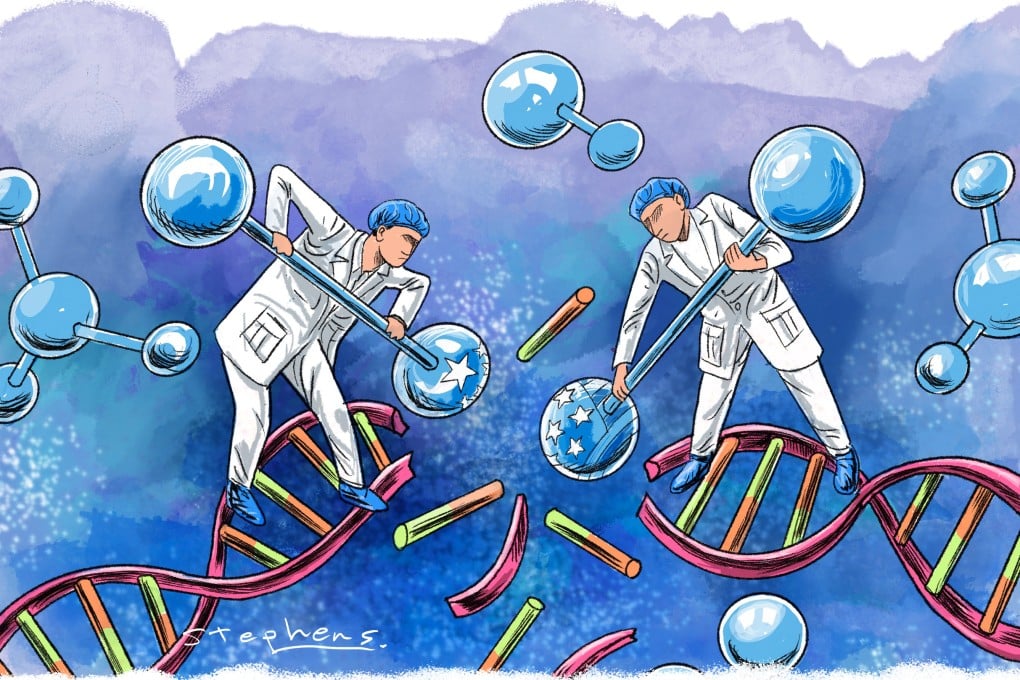Advertisement
Opinion | Is biotech the next battleground in US-China decoupling?
With both countries viewing technological leadership as a zero-sum game, the risk of a fragmented global innovation ecosystem is growing
Reading Time:4 minutes
Why you can trust SCMP
1

The Biosecure Act, recently passed by the US House of Representatives, marks a significant escalation in efforts to decouple the American and Chinese biotech ecosystems. The bill, which passed with strong bipartisan support, would prohibit federal funding for US companies that do business with several named Chinese biotech firms, including industry giants Wuxi AppTec and BGI Genomics.
This move reflects growing concerns in Washington about China’s ambitions in the life sciences and the potential national security risks posed by Beijing’s access to sensitive genetic and healthcare data.
Proponents of the act argue that the legislation is essential to protect American interests and maintain technological leadership. The US government has increasingly prioritised safeguarding its technological advantage, as demonstrated by similar legislative measures in other hi-tech sectors, including semiconductors, artificial intelligence (AI) and clean energy. In this context, legislating biosecurity is seen as a natural continuation of these decoupling efforts.
However, severing ties with Chinese biotech companies could hamper global scientific collaboration and slow the development of new treatments. The biotech industry has become deeply intertwined, with US firms relying heavily on Chinese contract research and development manufacturing organisations (CROs and CDMOs) for development and production.
An ageing population is driving demand for new drugs and treatments, increasing the complexity of disease management. Conditions such as cancer, Alzheimer’s and chronic illnesses are becoming more prevalent, further complicating the already lengthy and costly drug development process, typically taking 10 to 15 years and costing upwards of billions of dollars. Estimates suggest that of every 10,000 to 15,000 compounds tested during preclinical stages, only about five are considered safe for clinical trials and just one gains regulatory approval.
Disease complexity, stricter regulations and difficulties in patient recruitment have further extended development timelines, inflating research and development (R&D) costs. These delays also reduce the window of patent protection, which lasts 20 to 25 years in major markets such as the United States, Japan and China, giving companies less time to capitalise on their investments.
Advertisement
